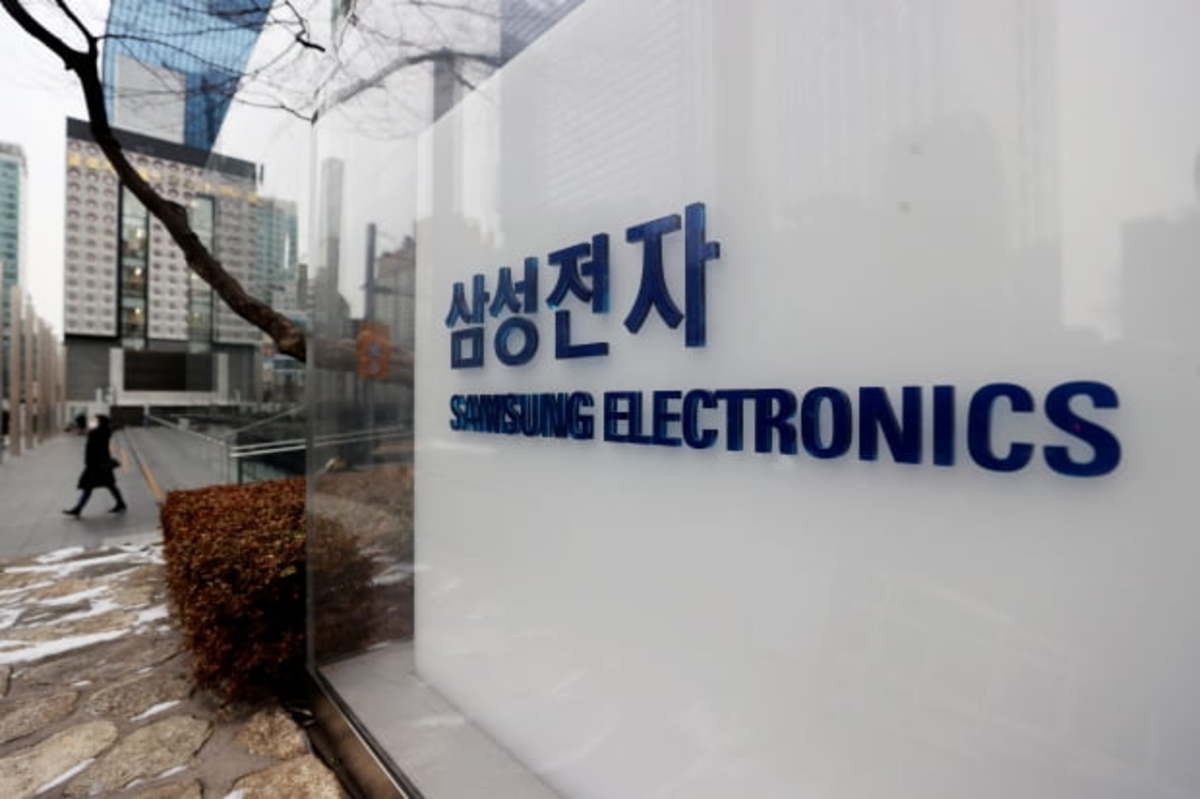 |
This file photo, taken on Jan. 18, 2021, shows the corporate signage of Samsung Electronics Co. at its office building in Seoul. (Yonhap) |
Samsung Electronics, South Korea’s top tech giant, is among 19 global semiconductor manufacturers invited to a White House meeting to be held virtually on Monday.
The CEO summit, according to US officials, will discuss a chip supply shortage, especially for those used in vehicles.
“On Monday afternoon, National Security Adviser Jake Sullivan and NEC Director Brian Deese, joined by Secretary of Commerce Gina Raimondo, will host a virtual CEO Summit on Semiconductor and Supply Chain Resilience,” the White House said in a released statement on Friday.
“They will discuss the American Jobs Plan and steps to strengthen the resilience of American supply chains for semiconductors and other key areas.”
Representatives from Alphabet, the parent company of Google, Taiwan Semiconductor Manufacturing Company, General Motors, Ford, Intel, Global Foundries and others are to attend the session. Samsung is the only participant from South Korea.
Samsung is the world’s largest producer of memory chips and is No. 2 after TSMC in the contract chipmaking segment, known as the foundry business.
Choi Si-young, Samsung’s foundry business chief, will likely be the one attending the White House summit, as the firm’s de facto boss Vice Chairman Lee Jae-yong is currently serving jail time for bribery, South Korean media outlets reported Sunday.
The meeting could affect Samsung’s US business plans, especially those to expand an existing chip production base in Austin, as the US government will try to use the gathering to secure a stable supply of chips for local carmakers.
Samsung could be asked to augment US’ output of its chips, the reports said.
Samsung has a major chip plant in Austin, known as Line S2, where it manufactures products like radio frequency integrated circuits, display driver integrated circuits, solid state drive controllers, image sensors and other microprocessors using nodes from 14 nanometers to 65 nanometers, but not chips for cars.
Auto chips require customization to meet specific requirements of each vehicle model and thus have small demands. Samsung has not heavily invested in that segment.
Samsung has been mulling an investment of around $17 billion to expand its chip production capacity in the country, with Austin being one of the candidate locations.
(
khnews@heraldcorp.com)




![[Herald Interview] 'Trump will use tariffs as first line of defense for American manufacturing'](http://res.heraldm.com/phpwas/restmb_idxmake.php?idx=644&simg=/content/image/2024/11/26/20241126050017_0.jpg)

![[Health and care] Getting cancer young: Why cancer isn’t just an older person’s battle](http://res.heraldm.com/phpwas/restmb_idxmake.php?idx=644&simg=/content/image/2024/11/26/20241126050043_0.jpg)

